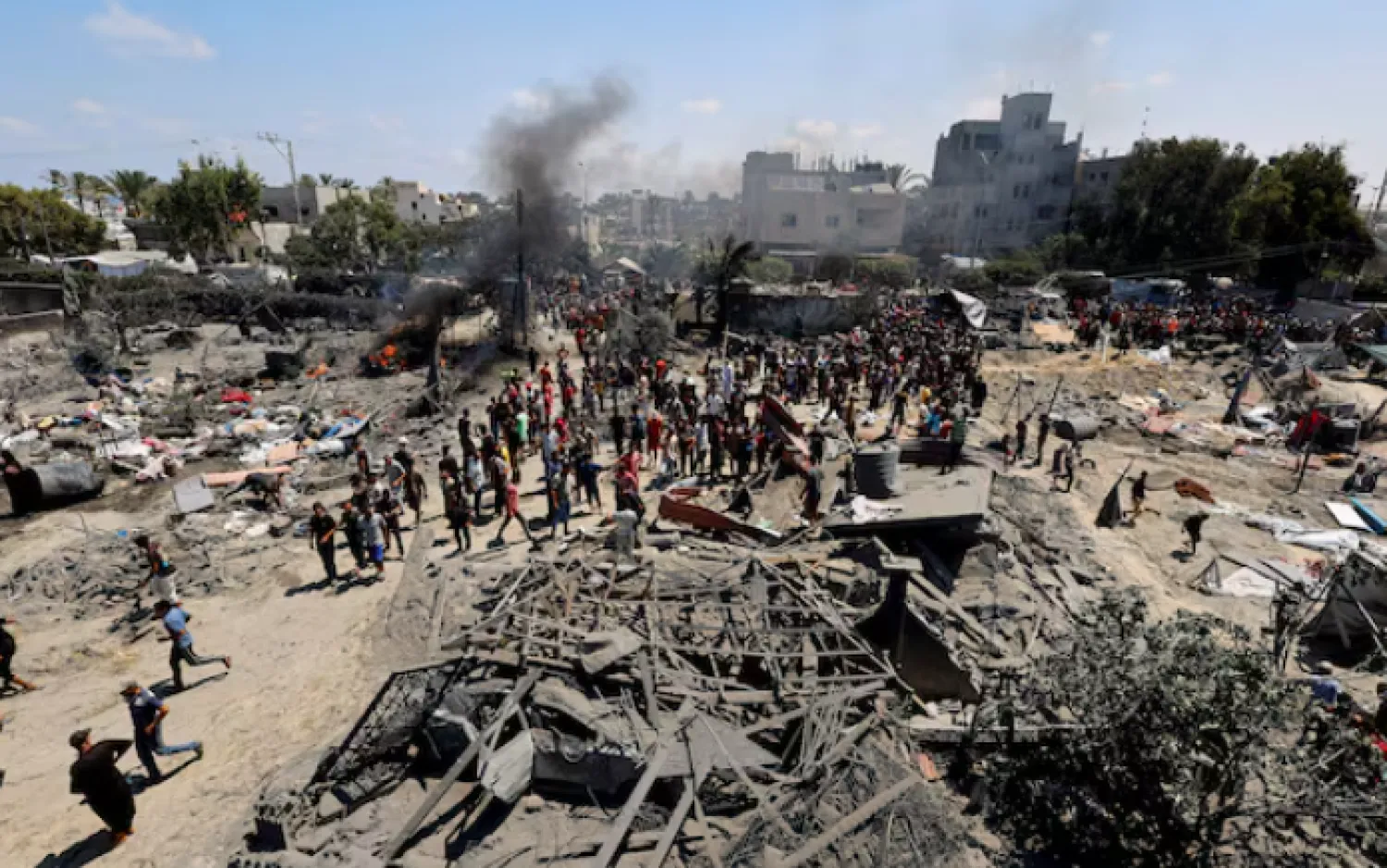The civil defense agency in Gaza said Sunday that 15 people were killed in a strike on a school sheltering war displaced where the Israeli military said it had targeted "terrorists".
The strike on the UN-run Abu Araban site in central Gaza's Nuseirat camp was the fifth on a school-turned-shelter in eight days.
The Abu Araban school was housing "thousands of displaced people," civil defense agency spokesman Mahmud Bassal told AFP, adding that most of the dead were women and children.
Schools in Nuseirat were the target for two of the earlier school strikes as Israel keeps up its offensive against Hamas Palestinian militants who triggered the war with their October 7 attack on Israel.
The Israeli military said its air force "struck a number of terrorists who were operating in the area of UNRWA's Abu Araban school building in Nuseirat".
It said the building had "served as a hideout" and base for "attacks" on Israeli troops.
AFPTV images showed the three-storey complex standing, with clothes and bedding airing out over its railings. A wall bearing the UN logo had been blown out, and rooms inside were damaged.
On July 6, Israeli aircraft hit Al-Jawni school, also run by the United Nations relief agency for Palestinian refugees (UNRWA), in Nuseirat. UNRWA said about 2,000 people were sheltering there at the time.
The following day, four people died in a strike on the church-run Holy Family school in Gaza City, in the territory's north, according to the Civil Defence agency.
On Monday, Israel hit another Nuseirat school, again saying it was targeting "terrorists".
The next day, a hospital source said at least 29 people died in a strike at the entrance to Al-Awda school in the Khan Yunis area, southern Gaza.
Israel says Hamas uses schools, hospitals and other public infrastructure for military purposes. Hamas denies the accusation.
France and Germany on Wednesday called for an investigation into the school strikes.
After the Al-Jawni strike, UNRWA spokesperson Juliette Touma told AFP that when the war began "we closed the schools and they became shelters."
UNRWA is the main relief agency in Gaza but more than half, or 190, of its facilities have been hit -- "some more than once" -- in the military response to the October 7 Hamas attacks, she said.









